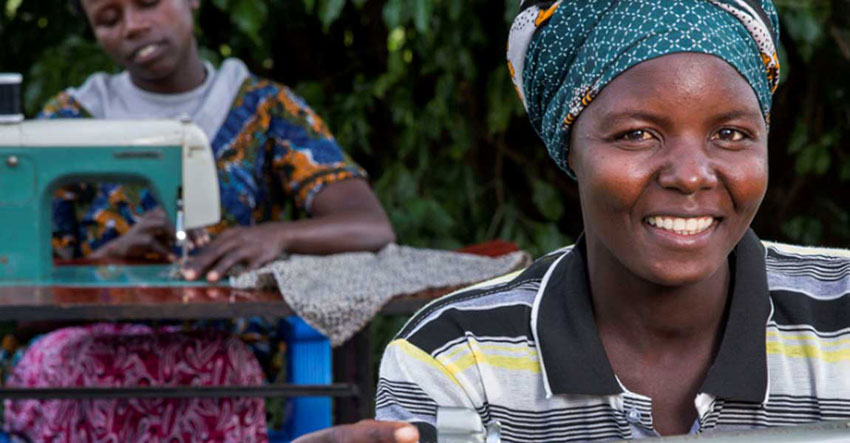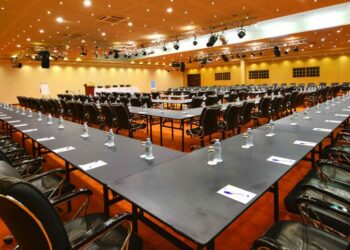By Gillian Nantume
At the turn of the millennium, the economic empowerment of women was on the global agenda because it was believed that empowering women was the first step in ensuring gender equality in the home, and in society.
There are experiences, which reveal that the labour burden on women is actually increasing since empowerment activities come along with more activities attached to her and in most cases done single handedly but expected to benefit the entire family. This is accelerated by the prevailing norms that surround ownership and decision making at family level yet interventions are not addressing these a fair equity.
However, recently, the Ministry of Gender Labour and Social Development (MGLSD) through the department of Family and Culture is advocating for change in focus. Instead of focusing on improving the woman’, youth, old persons, children separately as individuals within a family, the department is focusing on uplifting the entire family, which will, in the process, empower women.
For instance, if a family-based livelihood programme, such as Operation Wealth Creation, is geared towards
improving the household income, men (fathers) will participate more in it because it is intended to uplift his
family as a whole (women and children inclusive). At the end of the day, the woman will benefit and her contribution to the household income achieved without necessarily increasing her labour burden in the home.
Women have a vital role to play in promoting peace in the home and generally creating peaceful families.
However, this role is tied to their economic empowerment and gender socialization. The MGLSD is working with partners like SOS Children Village to empower the family with all the necessary skills to ensure harmony, family resilience and suitability. SOS Children V believes that the family is where children learn how to interact with other people, where they discover their family history, language and customs of their communities. The socio-economic status of the family and the community has a role to play in determining the safety and enjoyment of children’s fundamental rights and freedoms.
SOS Children Villages across the world further recognizes in its family strengthening programming the importance of family involvement. For over 2 years SOS Children’s Village has been implementing Parenting for
Respectability programme with communities in Katabi and Kakiri Sub Counties to help families be guided through child protection principles, and approaches to handling spousal relationships and children. The Parenting for Respectability Programme addresses the drivers of VAC and VAW since it enables both fathers and mothers to experience parenting sessions that address social norms from which unequal gender and social norms originate. (Wilkins, Tsao, Hertz, Davis, & Klevens, 2014).
As we celebrate the International Day of the Family (IDF), MGLSD is keen to promoting programmes that reach all the members of the family and address the different challenges that affect both men and women, boys and girls. Once such successful programmes are identified and scaled up, women’s contribution to a peaceful family and society will be visible.
Violence against women and girls, and violence against children have become a common occurrence all over the
world, with many women, girls, and children attesting to having experienced some form of violence in the
home in the course of their lifetime, this is justified from the children’s report on children 2018. Furthermore, household poverty increases the risk of these vulnerable groups experiencing violence; one of the leading causes of household poverty is the high number of children in the home compared to the household resources.
Research shows that making a choice to have fewer children can foster peace in the home. There is a direct correlation between women taking charge of their sexual reproductive health and increased household income.
Having resources to cater for family needs promotes peace in the once poverty is addressed. Research has also shown that an increase in family size demands more money spent on necessitates and less money saved for the family.
This means that poverty will increase as more children, women or dependents will require more resources to address their needs with no change in family income (Orbeta, 2005). Selina Tumusiime, a resident of Kabukwiri village in Ndangara Parish, in Rubirizi district in western Uganda, embraced family planning six years ago when her youngest child was born.
“………, I have the least number of children. But, I am happy because my husband supported my decision to prevent any more pregnancy. As a family, we can afford to take our children to school, while many other children around us have never seen the inside of a classroom.”
The ability and freedom to take charge of her reproductive health, means that a woman has more time to engage in activities that can bring more income to the family and space to rest, hence removing the risk for conflict in the
family. Besides farming, for the last four years, Tumusiime, has been part of an economic group, Ndangara and
Nyakiyanja Tutungukye Parish Groups, which engages in beekeeping and vegetable growing. With the extra money,she is able to put more money in the family basket, and take part in decision making in the home.
Women are crucial agents in creating peace and stability in their homes because they are the architects of gender
role development in their homes. They are the primary caregivers in the home and also responsible for the
emotional balance of their children and building their children’s values. As it is known that violence in the
family is mainly perpetuated because of gender-based discrimination and societal norms, a woman participating
in leadership role in the home, to complement her husband’s role, will ensure that peace in the family is
fostered.
Let all Ugandans join the MGLSD to advocate for “harmonious family: a key to sustainable peace and development” because it’s the commitment of Government to ensure that families are safe and thriving.
REFERENCE
Oberta, A.C. Poverty, Vulnerability and Family Size:
Evidence from the Phillipines (2005) Asian Development
Publishing
Do you have a story in your community or an opinion to share with us: Email us at editorial@watchdoguganda.com













